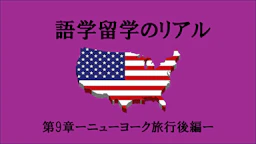Interview with Dr. Matthias Schlegl
〜Dr. Matthias Schlegl (Major: macroeconomics, international finance) 〜
大学に進学しようとする人にとって避けられないのが学部選び!そこで、今回は経済学部の教授であるマティアス・シュレーグル教授に経済学とはどういった学問なのか、大学進学の際に重要なことなど、学部選びに役に立つことをお聞きしてきました。また、ドイツの名門ミュンヘン大学での大学生活、さらにオックスフォード大学やカリフォルニア大学バークレー校でのリアルな体験についてもお聞きしてきました。経済学部に興味がある方、留学に興味がある方必見の記事となっています!
(今回の記事は英語での記事となっています。)
Contents
Part 1 "Fascination with Economics"
- Differences between Microeconomics and Macroeconomics
- What is International Finance?
- Attractive points with Macroeconomics and International Finance
Part 2 "Japan's Lost Decade"
- Current Research
- Bank of Japan's monetary policy
Part 3 "Reality of Foreign Universities"
- Differences between Japanese and German Universities
- Common characteristics of students at high-level universities
Part 4 "Don't be afraid and Don't be shy"
- Messages to high school students and university students
(Interview Date: July 28th, 2022)
Differences between Microeconomics and Macroeconomics
Dr. Matthias Schlegl, you are majoring Macroeconomics and International Finance. I think there are two major fields of economics, microeconomics and macroeconomics, what is the difference between them?
Dr. Schlegl: One of the major differences is whether economy-wide, or aggregate, variables are given or not. Economy-wide variables refers to workers' wages, prices of goods, interest rates, etc.
Microeconomics looks at the individual perspective. We look at a single household, an individual, a single company and how they optimally make decisions. For instance, we assume that a company wants to maximize its profits, or a household wants to maximize its happiness or its utility.
But both firms and households, they take aggregate variables as given. A company takes the wages it has to pay as given, or when we think about our spending, we take the prices in supermarkets, or the interest rate on a bank account as given. That's something we cannot negotiate. In other words, that's kind of exogeneous from our perspective. Given these external environments, we try to maximize our profits or our happiness. That's the microeconomic perspective: we look at individuals who take the economy-wide variables as given.
Microeconomics is the economics that takes economics wide variables as given. What about macroeconomics?
Dr. Schlegl: Macroeconomics analyzes what determines these economy-wide outcomes. What determines the price level in the economy or , what determines the interest rate on the bank account. Obviously, this is the collective outcome of the individual behavior. It's the equilibrium of aggregate demand and aggregate supply whereas microeconomics looks at the outcome of individual demand and individual supply.
So, microeconomics takes economics wide variables as given, while macroeconomics is the study of how those economic wide variables are determined.

What is International Finance?
I would like to ask you about your major, International Finance. What kind of study is international finance?
Dr. Schlegl: International finance looks at all different types of transactions that occur across borders. For example, all the transactions or interactions between Japan and other countries in the world. These transactions can take many different forms like international trade or asset sales and purchases, like if you buy foreign stocks or foreign bonds. In international finance, we also study exchange rates and the international effects of different policies. For example, if the US takes a monetary policy decision, this has feedback effects on Japan. So, international finance studies these or analyzes these cross-border interactions between economies.
So, international finance is the study that looks at the interaction between the countries. Why did you decide to study International Finance?
Dr. Schlegl: When I was an undergraduate student, the global financial crisis occurred. When you look at this crisis, it started in the United States, but it had huge effect all over the world. So, I was really interested in understanding these international connections across countries. Why does one event that happens very far away in the world have such a big effect on the German economy. I think because of the financial crisis I became interested in studying international finance.
Another reason is that I became interested in monetary policy due to the financial crisis.
How are monetary policy and international finance related?
Dr. Schlegl: In an open world where central banks make policy decisions, they affect not only their own country but also the external environment, especially through exchange rates.
For instance, when the US starts increasing interest rates, this influences the yen-dollar rate. Recently, the Japanese yen has depreciated a lot but this in turn has a feedback effect on Japan because for instance import prices in Japan increase a lot. It's more expensive for you to go to Europe or other countries, so this affects the relative demand for domestic and foreign products as well. So, starting from my interest in monetary policy, I was also becoming increasingly interested in the international dimensions of monetary policy.
Many concepts that we apply to study macroeconomics are a single country or closed economy. But we can also generalize these concepts to the open economy, and I think we must. Because we're living in a very globalized world so everyone should consider that.
In many economics courses, we only teach about the closed economy like looking only at Japan or Germany. But this is not the world we live in. We live in a very open world, and countries are highly connected via international trade, cross-country asset holdings and cross-country debt. When we look at the financial crisis, for instance, these crises spread very quickly across countries through these interactions. These are really at the core of international finance.
When I started studying economics as a student, the financial crisis started early in 2008. The U.S. investment bank Lehman Brothers defaulted. Then there was a big recession in Europe, America, and Japan. This made me interested in the macroeconomic aspects of economics. Thinking about the financial crisis and when we think about how they spread internationally, we must consider the International Monetary system as well.
In summary, at first you were interested in monetary policy. In real world, countries are connected so we must think about global effects of monetary policy. In order to learn the impact of monetary policy from a more realistic perspective, we must study international finance.

Attractive points with Macroeconomics and International Finance
If you recommend someone to study macroeconomics and international finance, what kind of aspect do you push? What are the attractive points of macroeconomics and international finance?
Dr. Schlegl: I think that depends on what every student is interested in individually. But, in my opinion, by studying macroeconomics and international finance, students will become to be able to understand historical events more deeply.
Historical event? Could you give us any examples?
For example, when I was a high school student, I was interested in history more than economics. But I realize that we must understand economics to understand many historical events. So, for instance, in German history, we have these big economic troubles like the hyperinflation in the 1920s and the World Economic depression in the 1930s. In school, we learn about both of them in history class because they help to understand what happened later with Hitler and the Second World War, and so on. But in history class we don't learn about why these events happened. Why did hyperinflation occur and why was there a global financial crisis.
So, to deepen this kind of understanding, I thought it's really important to understand the economic perspective as well. Because very big economic events can shape society, they can shape politics and history.
When you think about Japan, the collapse of Japan's bubble economy had a profound effect on transforming Japanese society, Japanese politics, and the mindset of many people in Japan. So, therefore, I think it's important to understand these big macroeconomics events.
So, by studying economics, the student can understand historical events more deeply from economic perspective. Are there any other attractive points?
Dr. Schlegl: I think it can help us to understand the difference across the countries.
For example, when you look at the last 20 years in Japan from an economic perspective, Japan looks very different from other countries. In Japan, the economy is stagnating, prices are stagnating or even going down, the interest rate is zero and the Bank of Japan does this very unconventional policy.
So, this is kind of what you know as a high school student in Japan, but other countries have a very different structure of the economy. There are different developments. So, I think it's really important to understand these, to have a global perspective in today's world and to understand how your country differs from other countries. Especially, I think it's important to understand the developments in Japan because Japan has quite a different economic structure from other countries, but recent events in Europe and the United States seem to mirror what happened in Japan over the last decades.
Moreover, I think it can help us to understand why we have differences across the countries.
For instance, when I was a high school student, a big issue in Germany was unemployment because the unemployment rate was very high at that time in Germany. When we look at other countries like US and Japan, the unemployment rate was much lower.
In Germany, sometimes we look at other countries for solutions to our problems. Macroeconomics is an area where we can apply different ideas and get different ideas from looking at the experience of other countries.
In 2008 and 2009, when there was a financial crisis, the interest rate become 0 for the first time in America and Europe. But we never had such an experience. We decide to study the Japanese economy and what we can learn from BOJ's policy. This international dimension of macroeconomics is interesting, and we can learn from other country's experiences.
Indeed, it's fascinating to observe the economics of national differences.
Part 1の記事はここまでです!マクロ経済学を研究している教授だからこそ言える、マクロ経済学の魅力が伝わってきたかと思います!Part 2 ではマティアス・シュレーグル教授の研究や現在の日銀の政策についての意見をお伝えしていきます!
関連記事
また、この記事も掲載されているokkeという勉強の大きな味方になってくれるアプリの方もぜひダウンロードよろしくお願いします!
- iOSの方はこちら:https://apple.co/3IKMN8x
- Androidの方はこちら:https://play.google.com/store/apps/details?id=com.spesden.okke
最後まで読んでいただきありがとうございます。






















